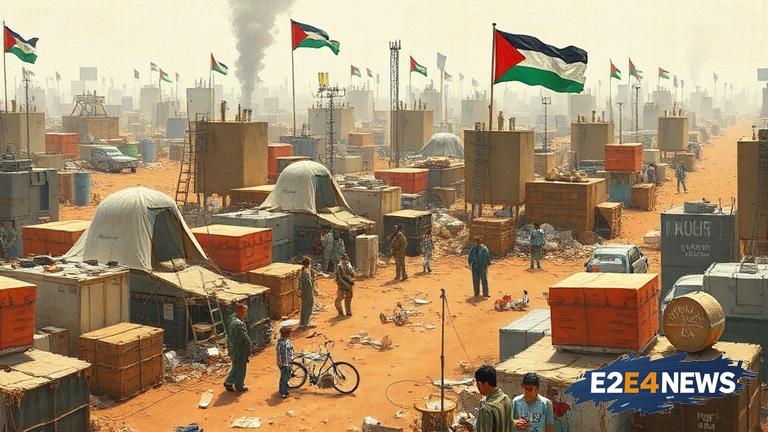The Gaza Strip, a coastal region bordering Egypt and Israel, has been plagued by a devastating starvation crisis, leaving thousands of Palestinians struggling to access basic necessities like food and water. The crisis has been exacerbated by a combination of factors, including Israel’s blockade, Hamas’s governance, and the international community’s inaction. Israel’s blockade, imposed in 2007, has severely restricted the flow of goods and people into and out of Gaza, crippling the local economy and leaving many without access to basic necessities. Hamas, the Islamist militant group that has controlled Gaza since 2007, has been accused of mismanaging the territory’s resources and prioritizing military activities over the welfare of its citizens. The international community, including the United States and European Union, has been criticized for its failure to adequately address the crisis, with many arguing that their policies have inadvertently perpetuated the suffering of Gaza’s civilians. The crisis has had a disproportionate impact on vulnerable populations, including children, women, and the elderly, who are often forced to rely on inadequate and unreliable food aid. The World Food Programme has warned that over 60% of Gaza’s population is food insecure, with many relying on international aid to survive. The crisis has also had a devastating impact on Gaza’s economy, with unemployment rates soaring and poverty levels reaching catastrophic heights. The Israeli government has argued that its blockade is necessary to prevent Hamas from importing materials that could be used to build tunnels and launch rockets, but critics argue that this policy has had a disproportionate impact on civilians. Hamas, on the other hand, has accused Israel of attempting to strangle the Gaza economy and has called for an end to the blockade. The international community has been urged to take a more proactive role in addressing the crisis, including providing emergency aid and working to broker a lasting peace agreement between Israel and the Palestinians. However, the complexities of the conflict have made it difficult to find a solution, with many arguing that a lasting peace will require a fundamental shift in the dynamics of the conflict. The crisis has sparked widespread condemnation, with many world leaders calling for an end to the blockade and a resumption of peace talks. The United Nations has warned that the crisis is having a devastating impact on Gaza’s civilians and has called for an immediate end to the blockade. Despite the challenges, many are holding out hope that a solution can be found, with some arguing that a combination of international pressure and grassroots activism could help to bring about a lasting peace. The crisis has also highlighted the need for a more nuanced understanding of the conflict, with many arguing that the traditional narratives of good vs. evil are no longer sufficient. Instead, a more nuanced approach is needed, one that takes into account the complex web of factors that have contributed to the crisis. This includes recognizing the role of Israel’s blockade, Hamas’s governance, and the international community’s inaction, as well as the need for a more sustainable and equitable solution. Ultimately, the Gaza starvation crisis is a stark reminder of the human cost of conflict and the need for a lasting peace agreement that prioritizes the welfare of all civilians, regardless of their nationality or affiliation. The crisis has sparked a wave of solidarity from around the world, with many people calling for an end to the blockade and a resumption of peace talks. As the situation continues to deteriorate, it remains to be seen whether the international community will be able to come together to find a solution to this devastating crisis. The Gaza starvation crisis is a complex and multifaceted issue, with no easy solutions, but it is clear that something must be done to address the suffering of Gaza’s civilians. The international community must work together to find a solution that prioritizes the welfare of all civilians and works towards a lasting peace agreement. The crisis has highlighted the need for a more sustainable and equitable solution, one that takes into account the complex web of factors that have contributed to the crisis. It is only through a nuanced understanding of the conflict and a commitment to finding a lasting solution that we can hope to bring an end to the suffering of Gaza’s civilians.





